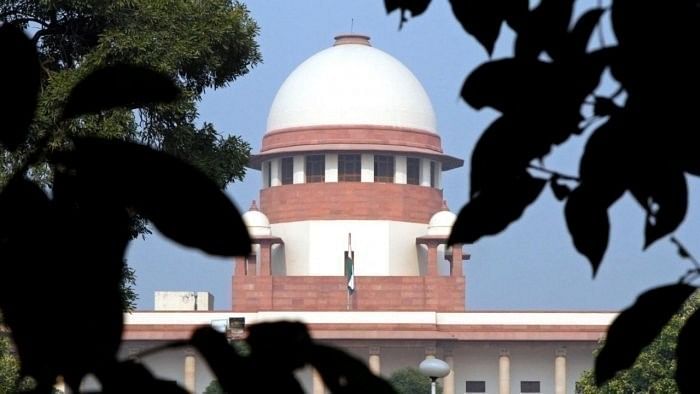
The Supreme Court of India.
Credit: PTI File Photo
New Delhi: The Supreme Court has said compassionate appointment is provided to bail out a family of the deceased employee facing extreme financial difficulty and but for the employment, the family will not be able to meet the crisis.
"This shall in any case be subject to the claimant fulfilling the requirements as laid down in the policy, instructions, or rules for such a compassionate appointment," a bench of Justices Abhay S Oka, Ahsanuddin Amanullah and Augustine George Masih said.
The court said it is not that the compassionate appointment can't be given to the dependent of an employee who died in harness, without any kind of scrutiny or undertaking a process of selection.
The bench further said the compassionate appointment can't be claimed as a vested right for appointment.
In a judgment on Wednesday, November 13, 2024, the court rejected a plea by Tinku, who was denied compassionate appointment 11 years after death of his father, a constable in Haryana police. The petitioner claimed since he was seven years old in 1997 when his father had demised, he could not seek such an appointment.
Having noted that a period of three years has been laid down from the date of death of the employee for putting forth a claim by a dependant under the rules, the bench said the decision by the state government cannot be termed as unjustified or illogical.
The petitioner's counsel contended in similar factual matters, the benefit of appointment on compassionate grounds had been granted to other candidates.
The court, however, said the very idea of equality enshrined in Article 14 is a concept clothed in positivity based on law.
"It can be invoked to enforce a claim having sanctity of law. No direction can, therefore, be issued mandating the State to perpetuate any illegality or irregularity committed in favour of a person, an individual, or even a group of individuals which is contrary to the policy or instructions applicable," the bench said.
The court also said, passing of an illegal order wrongfully conferring some right or claim on someone does not entitle a similar claim to be put forth before a court nor would court be bound to accept such plea. The court will not compel the authority to repeat that illegality over again, it asserted.
"If such claims are entertained and directions issued, that would not only be against the tenets of the justice but would negate its ethos resulting in the law being a causality culminating in anarchy and lawlessness. The court cannot ignore the law, nor can it overlook the same to confer a right or a claim that does not have legal sanction. Equity cannot be extended, and that too negative to confer a benefit or advantage without legal basis or justification," the bench said.
The court, however, allowed the mother of the petitioner to seek lump sum compensation from the authorities as permitted under the rules.
